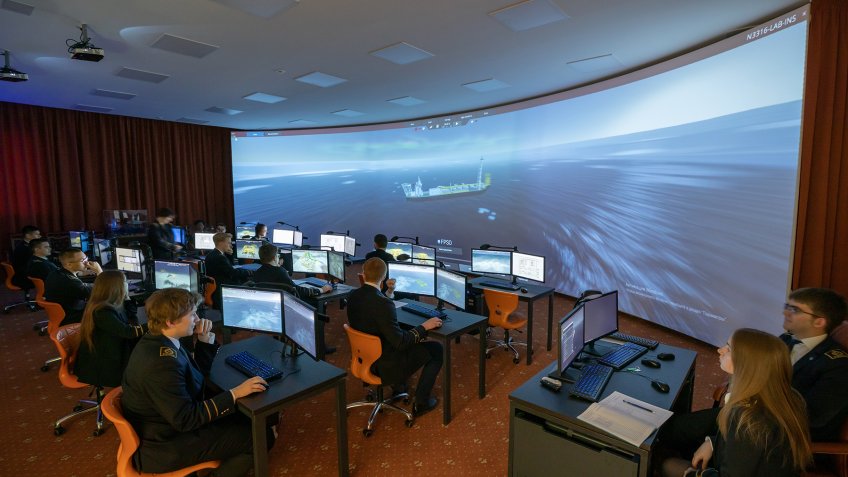
This requires that such professions as military, doctor, teacher, and scientist once again become the real elite of society. This is the opinion of Vladimir Litvinenko, rector of the St. Petersburg Mining University and a leading Russian expert on mineral resources issues:
"Friday, December 30, marks the 100th anniversary of the formation of the USSR. I was born in this country, received a great education, served in the army - evasion was considered shameful then - then worked in the scientific and educational sphere. Of course, any state system is not ideal. And many citizens of the Soviet Union, even in its heyday, could not boast of a high standard of living. But the unique model of social development that existed in our country until the nineties of the last century was characterized by the fact that such professions as military, doctor, teacher, and scientist represented the real elite of society. The whole ideology was aimed at ensuring that no one could have the slightest doubt that this was indeed the case.
This approach allowed us to turn from a backward agrarian country into a high-tech power whose representatives were the first in the world to fly into space, build a nuclear power plant, invent the microwave oven, and create many other innovations that accelerated global technological progress. The Soviet educational system was aimed at educating creators, not consumers. Finland, Germany and many other countries copied our educational standards because they considered them advanced.
I know exactly what I'm talking about, because I work at the oldest technical institution of higher education in Russia, whose graduates and professors stood at the origins of technological progress in our country, both in the 19th and 20th centuries. But today, ironically, the names of most of them are forgotten. Extracting gold from ore with a useful component content of less than one gram per ton, discovering the Volga-Urals oil and gas province, increasing the depth of oil processing to American standards - all this and much more became possible, thanks to our scientists.
The problem is that domestic engineers who worked on breakthrough technologies 30, 40, and 50 years ago are gradually leaving. But who takes their places? Often these are people who received superficial school and university education, who are not capable of large-scale thinking, who do not read books and do not strive to grow professionally. They mentally differ from their predecessors and have only experience, but not knowledge. That is they understand which button should be pressed or which lever should be turned in this or that case, but they are not ready for effective actions when an emergency situation arises. And yet they build space rockets, control drilling wells, nuclear power plants, and other critical infrastructure facilities.
In fact, all of us today are hostages of the liberal idea, an integral part of which is the reduction of requirements for national educational standards, and the formation of a deficit of scientists and engineers on a planetary scale. Post-industrial powers, by controlling world resources and capital, are able to localize the intellectual potential of the entire world in their territory, leaving less progressive countries "crumbs from the pie," thereby artificially slowing their socio-economic development. This is the main consequence of globalization according to Western models, which in no way corresponds to our state interests.
That is why our government must, as soon as possible, not only assume the mission of regulating, but become a decision-making center that promotes the development of the most important sectors of the national economy. The state must set specific tasks for educational institutions, scientists and businesses, set deadlines for their implementation, mobilize society to implement them, and concentrate all available resources on those areas that are a priority for maintaining Russia's sovereignty. Only in this way can we raise the quality level of the scientific and educational environment and multiply the colossal scientific reserve that was created during the Soviet era.
There is no need to listen to the liberals who advocate minimizing government intervention in market relations. After all, it was their ideas that led to the impoverishment of Russians in the 1990s, as well as the regression of our science and education. I am certain that we will be able to respond to all the challenges facing our country today only by transferring our national economy to a mobilization track, naturally, without violating market mechanisms. That is, the function of the employer should a priori remain with private companies. The government's mission must be to develop understandable and beneficial to all - both the government and the business community - standards and requirements, and to oversee their proper implementation through exclusively transparent regulatory mechanisms without government involvement in production.
Only then will we be able to regain our status as a high-tech power, develop our unique raw materials and intellectual potential, and ensure the progressive social and economic development of society. The first step on this path should be the return of such professions as military, doctor, teacher, and scientist to the status of the elite. Otherwise, our chances of preserving our civilizational identity will be much lower.





